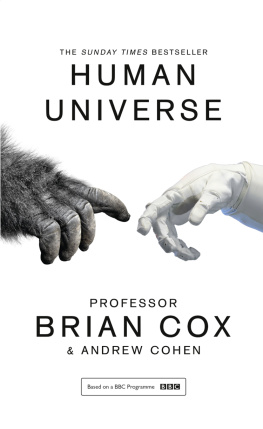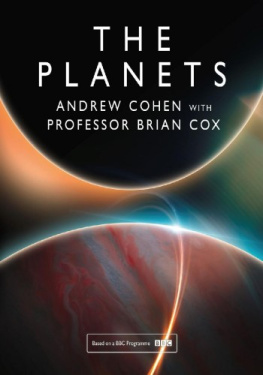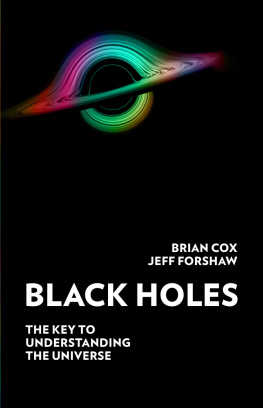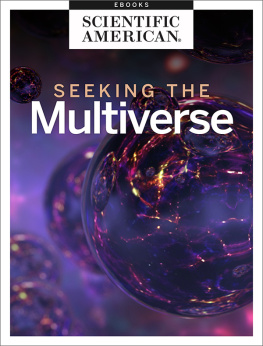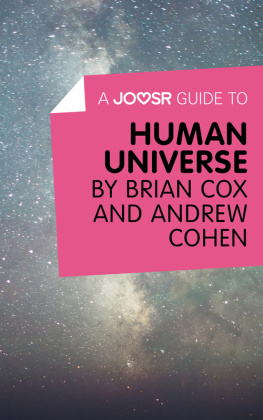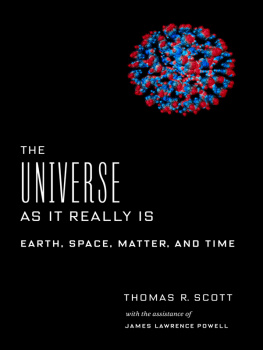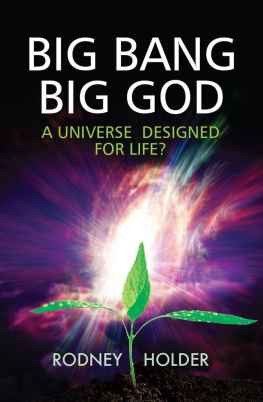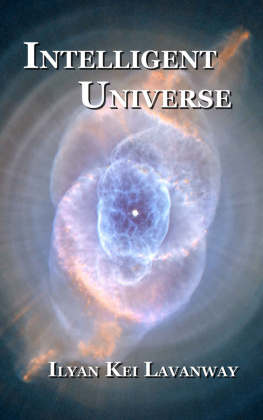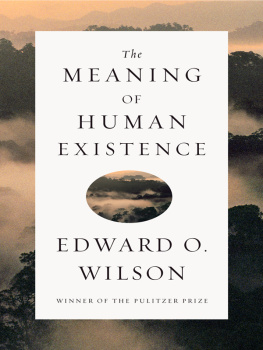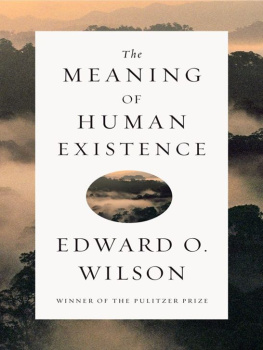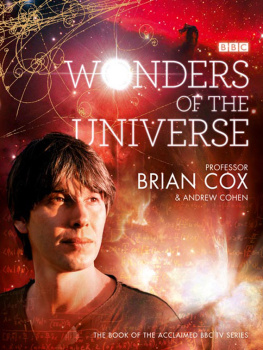Contents
Australia
HarperCollins Publishers (Australia) Pty. Ltd.
Level 13, 201 Elizabeth Street
Sydney, NSW 2000, Australia
http://www.harpercollins.com.au
Canada
HarperCollins Canada
2 Bloor Street East 20th Floor
Toronto, ON, M4W, 1A8, Canada
http://www.harpercollins.ca
New Zealand
HarperCollins Publishers (New Zealand) Limited
P.O. Box 1
Auckland, New Zealand
http://www.harpercollins.co.nz
United Kingdom
HarperCollins Publishers Ltd.
1 London Bridge Street
London, SE1 9GF
http://www.harpercollins.co.uk
United States
HarperCollins Publishers Inc.
195 Broadway
New York, NY 10007
http://www.harpercollins.com
Professor Brian Cox, OBE is a particle physicist and a professor at the University of Manchester as well as researcher on one of the most ambitious experiments on Earth, the ATLAS experiment on the Large Hadron Collider in Switzerland. He is best known to the public as a science broadcaster and presenter of the popular BBC Wonders trilogy.
Andrew Cohen is Head of the BBC Science Unit and the Executive Producer of the BBC series Human Universe. He has been responsible for a wide range of science documentaries including Horizon, the Wonders trilogy and Stargazing Live. He is an honorary lecturer in Life Sciences at the University of Manchester and lives in London with his wife and three children.
We first began to discuss the television series that became HumanUniverse in the summer of 2012. Its the fourth major television project we have worked on together and like all of the previous series it has required the talent and dedication of a brilliant team of people. Wed like to thank them all for the endless passion and commitment they have given to the series. Wed especially like to thank Gideon Bradshaw, the Series Producer, for his outstanding leadership. Gideon has worked on many of our television projects over the years including Horizon and the Wonders series and as always his creativity, vision and passion have been ever present during the production of Human Universe. The team also consisted of a world-class group of directors: Stephen Cooter, Nat Sharman, Annabel Gillings and Michael Lachman. The ability to take complex scientific ideas and transform them into beautiful films is a rare talent and we are lucky to have had such expertise on the project. We would also like to thank the hugely talented Paul OCallaghan, Director of Photography, who has brought such a vibrant beauty to the cinematography across the series, Andy Paddon, soundman, for his endless hard work across all of the films, Rob McGregor for his coffee machine and for shooting so many beautiful scenes both above and below the water and Phillip Sheppard for his beautiful score. Wed also like to thank Davina Bristow, Mags Lightbody, Laura Flegg, Alice Jones, Jodie Adams, Karen McCallion and Eloisa Noble for all the ideas and dedication they have brought to the series.
Editing is such an important part of the television-making process and we are hugely grateful to Darren Jonusas for his craft in shaping the series along with the other superb editors Graeme Dawson, Louise Salkow and Gerard Evans. Wed also like to thank Rob Hi. e and the team at BDH for the design and visual effects they have brought to every film.
Every production also needs a brilliant team back in the office and Human Universe relied again and again on the leadership of Production Manager Alexandra Nicolson, Production Executive Laura Davey and the hard work and dedication of all the production team. Thank you to Louisa Reid, Viola Schwedhelm, Carly Wallis, Alexandra Osborne, and all of those who worked so tirelessly to support this complex production. Wed also like to thank Nik Sopwith and Kate Bartlett who helped shape and nurture the ideas that would form the foundation of the series during its early development.
There are of course so many others who helped make the series and we are grateful to them all, but we would like to thank Peter Leonard, Jenny Scott, Professor Nik Lane, Professor Jeff Forshaw, Professor Frank Drake, Martin West, Julius Brighton, Helene Ganichaud and Vicky Edgar.
Plus a very special thanks to Sue Rider for all of her endless support.
As always, the team at HarperCollins have been outstanding in delivering such a beautiful book against punishing deadlines. Wed particularly like to thank Zo Bather, whose brilliant design is found in this and all three of the Wonders books, Michael Gray, Julia Koppitz, Chris Wright, Anna Mitchelmore and of course Myles Archibald, our patient and wise publisher.
Wed also like to thank the University of Manchester for their continued unwavering support and encouragement, in particular Dame Nancy Rothwell, President and Vice Chancellor, who allows her academics the freedom to be academics.
Cognitio, sapientia, humanitas.
For me, it was an early 1960s brick-built bungalow on Oakbank Avenue. If the wind was blowing from the east you could smell vinegar coming from Sarsons Brewery although these were rare days in Oldham, a town usually subjected to Westerlies dumping Atlantic moisture onto the textile mills, dampening their red brick in a permanent sheen against the sodden sky. On a good day, though, youd take the vinegar in return for sunlight on the moors. Oldham looks like Joy Division sounds and I like Joy Division. There was a newsagent on the corner of Kenilworth Avenue and Middleton Road and on Fridays my granddad would take me there and wed buy a toy usually a little car or truck. Ive still got most of them. When I was older, Id play tennis on the red cinder courts in Chadderton Hall Park and drink Woodpecker cider on the bench in the grounds of St Matthews Church. One autumn evening just after the start of the school year, and after a few sips, I had my first kiss there all cold nose and sniffles. I suppose that sort of behaviour is frowned upon these days; the bloke in the off-licence would have been prosecuted by Oldham Councils underage cider tsar and Id be on a list. But I survived, and, eventually, I left Oldham for the University of Manchester.
Everyone has an Oakbank Avenue; a place in space at the beginning of our time, central to an expanding personal universe. For our distant ancestors in the East African Rift, their expansion was one of physical experience alone, but for a human fortunate to be born in the latter half of the twentieth century in a country like mine, education powers the mind beyond direct experience onwards and outwards and, in the case of this little boy, towards the stars.
As England stomped its way through the 1970s, I learned my place amongst the continents and oceans of our blue planet. I could tell you about polar bears on Arctic ice flows or gazelle grazing on central plains long before I physically left our shores. I discovered that our Earth is one planet amongst nine (now redefined as eight) tracing out an elliptical orbit around an average star, with Mercury and Venus on the inside and Mars, Jupiter, Saturn, Uranus and Neptune beyond. The Sun is one star amongst 400 billion in the Milky Way Galaxy, itself just one galaxy amongst 350 billion in the observable universe. Later, at university, I discovered that physical reality extends way beyond the 90-billion-light-year visible sphere into if I had to guess based on my 46-year immersion in the combined knowledge of human civilisation infinity.
This is my ascent into insignificance; a road travelled by many and yet one that remains intensely personal to each individual who takes it. The routes we follow through the ever-growing landscape of human knowledge are chaotic; the delayed turn of a page in a stumbled-upon book can lead to a lifetime of exploration. But there are common themes amongst our disparate intellectual journeys, and the relentless relegation from centre stage that inevitably followed the development of modern astronomy has had a powerful effect on our shared experience. I am certain that the voyage from the centre of creation to an infinitesimally tiny speck should be termed an ascent, the most glorious intellectual climb. Of course, I also recognise that there are many who have struggled and continue to struggle with such a dizzying physical relegation.
Next page
